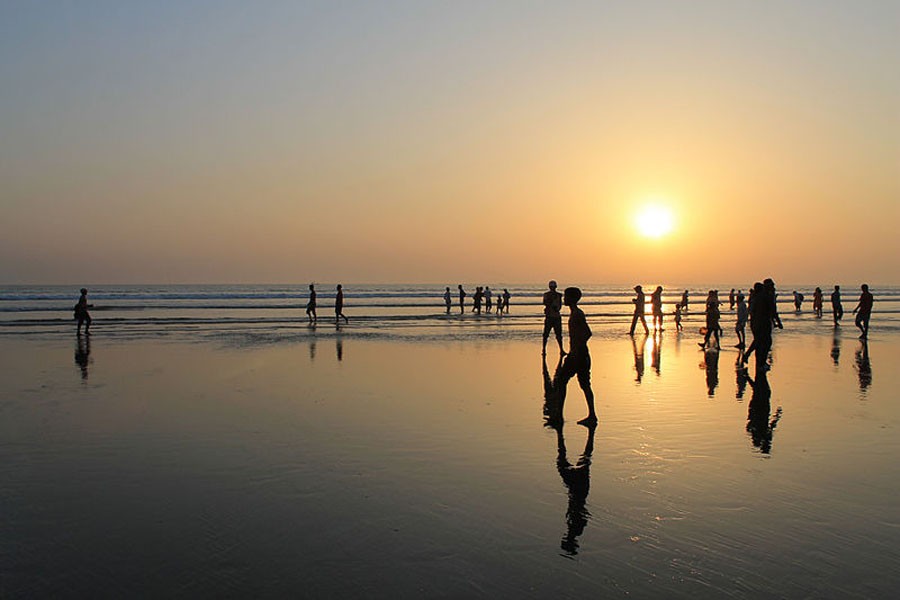As the influx of Rohingya refugees continues unabated, the country's Cox's Bazar-based tourism is depressingly being made to brace for a prolonged crisis. The way things keep unfolding in the entire district, real bad times appear to be awaiting businesses related to the tourism sector centred on the site, the largest tour destination in the country. Finding the occupancy of hotels, motels and the rest houses below expectation in this pre-winter peak season, many of their owners apprehend dreadful days ahead. The Cox's Bazar town is now reported to be on way to be overrun by the refugees in search of livelihood. Residents of the city have expressed their concern at the clandestine entry of the Rohingya refugees. What's most worrying, many of them are found elbowing out local labourers in sea-going fishing boats and rickshaw-pullers on cheaper wages and fares.
A largely tranquil and attractive resort, the beach town along the coast of the Bay of Bengal, has already started offering a dreary look, thanks to the entry of the refugees from Ukhia camps in Teknaf, the chief landing point of Rohingyas fleeing Myanmar by sea. Despite the efforts by the local administration to keep the refugees within the bounds of designated camps, a lot of them continue to escape the enclosures on allegedly being helped by their relatives. These Rohingyas have been living in the Cox's Bazar district since the earlier phases of their influx. Apart from the loopholes in the enforcement of law, the sheer pressure of the often-unwieldy refugees' number and that of the daily fresh arrivals is proving unmanageable by the day. After Ukhia, it is now the turn of Cox's Bazar to bear with the woes caused by these refugees swarming on the tourist resort. While vacationing to enjoy some carefree moments, no tourists are prepared to face unsightly spectacles. Due to the presence of thousands of miserably battered refigees in Teknaf, tourists are also reportedly dropping their plans to visit the St Martin's Island in the Bay. In effect, this amounts to a double whammy for the tour operators.
The country's tourism sector has in the last couple of years put in the best of its efforts to recoup the losses it incurred during countrywide political mayhem in fiscal year (FY) 2013-14. With the return of domestic tourists to the popular sites, the sector experienced a kind of resurgence. It prompted many tour operators to be innovative and competitive to keep the momentum going. Just in this phase of recovery, the latest Rohingya influx appears to be a bolt from the blue for the country's tourism sector. Apart from sheltering nearly 800,000 displaced Rohingyas on pure humanitarian ground, Bangladesh has been eager for an amicable solution to the crisis since it began last August. With the continued increase in the intensity of the crisis, the country cannot bypass the grim realities unfolding as days wear on.
Given the dillydallying in the process of the Rohingyas' repatriation, coupled with thin flows of relief goods from the developed world, the crisis now appears to be headed for becoming a protracted problem for the country. For now, the sectors of tourism and local people's livelihood are taking direct heat from the crisis. The environment has been taking the brunt since the start of the Rohingya influx. In order to keep further hazards at bay, pragmatic and muti-pronged measures have no substitutes. Strict enforcement of relevant laws also warrants urgency.


